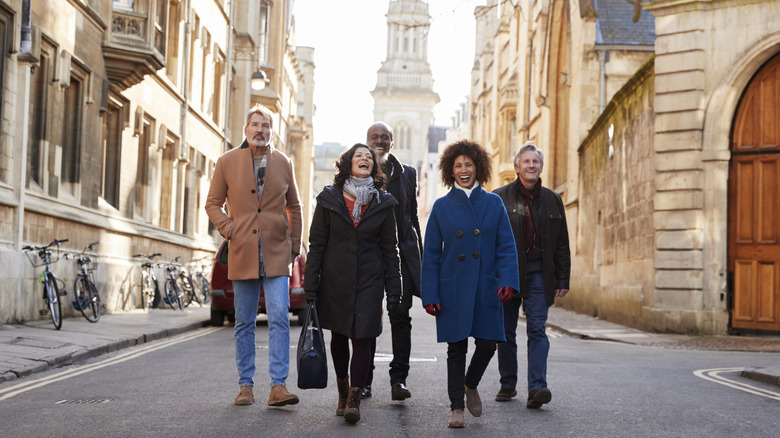Retirees Be Warned: Avoid Purchasing This Asset If You Don't Want To Bleed Money
For some, retirement marks the turning point between a life of work and a life of play. At the very least, retirees get a lot more time to have fun after clocking out of the working life, hopefully forever. However, paying for that fun may get harder to do in one's golden years, especially if retirement spending feels like a luxury spree. Some retirees may want to pay for an asset that screams fun, but actually sucks the rest of their life's savings dry.
The dream of finally buying a vacation home for your retirement years can be very tempting. A second home in a cute North Carolina town full of boardwalks, beaches, and golf sounds like a great place to spend a bunch of downtime. Some retirees might even consider getting another nest in one of the cheapest states for retirement in the U.S. Alternatively, snapping up a beachfront home in one of America's most retirement-friendly seaside towns might feel like a no-brainer. But, sadly, this might not be the best decision.
Owning a second home can be a financially risky move for anybody, but certainly for retirees who may find their lives anchored to rising costs and unpredictable rental markets. Working for a living is one thing, but working to maintain a second home past the end of one's traveling years is a cruel twist of fate — and a very expensive one.
The financial drawbacks of buying a second home in retirement
Some retirees may be in the financial position to pay for a vacation home. Even so, often they don't consider the ongoing costs required to maintain their vacation home over the years. Delaying home repairs can be costly for a primary home, and paying for additional repairs and upkeep on a vacation home can really bust the retirement budget. Other costs of vacation home ownership can also drain the bank account.
Property taxes and insurance can bleed money out of a retirement fund, combined with the draining cost of furnishing another home entirely. Retirees may find themselves stumped by the obvious and hidden costs of second home ownership, including a second set of pricey appliances, energy costs, cookware, and more. Consider all the items that are obvious in a primary home. Now include all the important, but out-of-sight, items. In all likelihood, all of them will need to be purchased for a vacation home, as well as moved into it. Even if the retirees intend to use some furniture from their primary home in the second one, moving furniture can still be costly. Also, they will now have to spend precious time worrying about whether hiring a moving company is worth the cost to haul furniture.
Climate change is also of concern to vacation home owners, who may find their coastal homes in constant (and expensive) weather-related dangers. Finally, some retirees buy a vacation home, thinking they will spend a lot of time there or profit from renting it out in their absence. Renting a vacation home is too unpredictable to plan retirement around.
Affordable alternatives to vacation home ownership
The more frugal retiree can have fun by spending money on travel and temporary home rentals, with the freedom to walk away from any looming, expensive repairs at the end of their trip. The freedom and flexibility to travel may prove far more valuable in retirement than yet another mortgage. Time is more precious than money, and can be spent better with mobility.
A weekend away skiing through perfect snow in a luxury cabin rental may seem expensive up front, until the costs are split with other retiree friends. Booking a 'shoulder season' vacation would likely be in line with most retirees' schedules, easier on the budget, and cheaper in the long term than a vacation property requiring sky-high investment. For those who also want to do some good with their travel, "voluntourism" combines the joys of sightseeing with the good work of performing a needed service. Some may also enjoy using an RV to see the country for less than the cost of a second home, although the average cost of living in an RV full-time may get expensive.
Some retirees eventually return to the workforce, either to earn more income or for inclusion. But it's best to do this of your own choice, and not out of pressure to maintain a second home. Spending money on a vacation home may seem like a dream, but having to return to work for it could feel more like a living nightmare. Retirees should enjoy the fortune of their time without spending all of their money on the status symbols of retirement, however dreamy they may seem.


